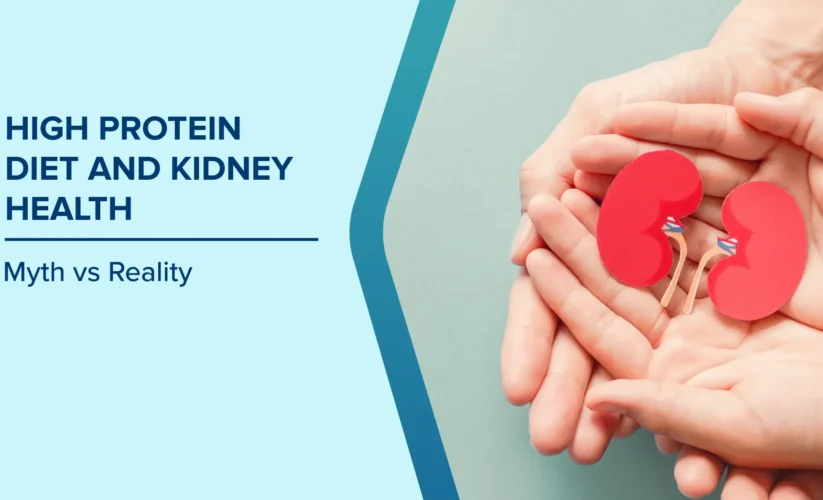Obesity and Kidney Disease: How Excess Weight Affects Your Kidneys

Obesity has become a significant global health challenge, affecting millions of individuals and increasing the risk of numerous chronic conditions. While most people associate obesity with diabetes, heart disease, and hypertension, its impact on kidney health is often overlooked. Excess body weight can severely impact kidney function, leading to chronic kidney disease (CKD) and other renal complications. Understanding the link between obesity and kidney disease is crucial for maintaining overall well-being and preventing long-term health issues.
The Connection Between Obesity and Kidney Disease
1. Hypertension and Kidney Damage
One of the primary ways obesity affects the kidneys is by increasing the risk of hypertension (high blood pressure). High blood pressure puts excessive strain on the delicate blood vessels in the kidneys, impairing their ability to filter waste efficiently. Over time, this can lead to kidney damage, making individuals with obesity more prone to developing chronic kidney disease (CKD).
2. Diabetes and Insulin Resistance
Obesity is a major risk factor for type 2 diabetes, which significantly increases the likelihood of kidney disease. The kidneys play a crucial role in glucose regulation, and when insulin resistance develops due to obesity, the body struggles to manage blood sugar levels effectively. This increases the risk of diabetic nephropathy, a severe kidney condition that can progress to kidney failure if left unmanaged.
3. Inflammation and Kidney Function Decline
Excess body fat, especially visceral fat, leads to chronic low-grade inflammation. Fat cells release inflammatory substances that can damage kidney tissues and disrupt normal kidney function. This inflammation can contribute to the progression of conditions like glomerulonephritis, further worsening kidney health.
4. Dyslipidemia and Kidney Disease
Obesity is commonly associated with dyslipidemia, a condition characterized by abnormal levels of cholesterol and triglycerides in the blood. High levels of unhealthy fats can contribute to renal vascular disease, restricting blood flow to the kidneys and impairing their function. Over time, this can accelerate kidney damage and increase the risk of CKD.
How to Protect Your Kidneys from Obesity-Related Damage
Managing obesity effectively can help reduce the risk of kidney disease and improve overall health. Here are some key steps to protect your kidneys:
1. Maintain a Healthy Diet
A well-balanced diet rich in fruits, vegetables, whole grains, and lean proteins can help control weight, lower blood pressure, and regulate blood sugar levels. Avoiding processed foods, excessive salt, and sugary beverages is essential for kidney health.
2. Engage in Regular Physical Activity
Exercise plays a crucial role in weight management and overall health. At least 30 minutes of moderate exercise five times a week can help regulate blood pressure, reduce inflammation, and improve metabolic health, all of which support kidney function.
3. Monitor Blood Pressure and Blood Sugar Levels
Regular health check-ups can help detect early signs of hypertension and diabetes, allowing for timely interventions. Keeping these conditions under control reduces the risk of kidney complications.
4. Stay Hydrated
Drinking an adequate amount of water daily helps the kidneys flush out toxins and maintain their filtration efficiency. Dehydration can strain kidney function and increase the risk of kidney stones and infections.
5. Seek Medical Guidance
If you are overweight or at risk of kidney disease, consulting a nephrologist can provide personalized guidance on managing your health. Dr. Shashidhar Shree Niwas, a leading kidney specialist with over 25 years of experience, offers expert care for patients dealing with kidney disease, dialysis, and transplantation.
Conclusion
The link between obesity and kidney disease is a complex interplay of metabolic, inflammatory, and vascular factors. Addressing obesity is not just about weight loss—it is about protecting vital organs like the kidneys from irreversible damage. By adopting a healthy lifestyle, managing blood pressure and diabetes, and seeking expert medical advice, individuals can significantly lower their risk of kidney disease and enjoy better overall health.
Take charge of your kidney health today! For expert consultation and kidney care, book an appointment with Dr. Shashidhar Shree Niwas at the Kidney and Hypertension Clinic.






